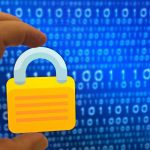Business Wire IndiaV. Balasundaram, CFO-India, Middle East and Africa, Frost & Sullivan, exhorted CFOs to embrace emerging technologies to face the transformation in finance successfully. In his keynote address at the 2nd edition of CFO Engage Summit in Mumbai, Balasundaram stressed the need to be aware and to adopt new technologies to endure in the dynamic world of finance.
“Major factors of transformation in the finance function in the next few years would not be from legislation but from technology. New business models are emerging from upcoming technology developments,” said Balasundaram, elaborating on new business models such as aggregator and disintermediation models. In the aggregator business model, the company collects information about providers and seekers of a particular service and provides a technology platform to connect them. For example, the largest taxi company Uber owns no vehicles. They basically connect the taxi owners with service seekers through their technology platform. In the disintermediation business model, a technology platform is used to eliminate intermediaries. For example, peer-to-peer lending has become popular which has reduced the involvement of traditional banks in the basic deposits and lending activities.
For further information on this topic, please mail Priya George, Corporate Communications at [email protected].
He also touched upon new technologies that are creating waves in the business and finance world, such as:
Cloud Computing
Cloud computing is taking over the scene due to the various advantages it offers, such as pay-as-you-go option, reduction in setup time, easy scalability, hassle-free updates of hardware/software, etc. The World Economic Forum, Geneva, conducts a global survey every 2 years to find out the expected adoption of new technologies, their effect on workforce, etc., and publishes a report called “The Future of Jobs Report”. Their 2018 report says that 72% of the world’s largest enterprises will be adopting Cloud Computing in the next 4 to 5 years, which is huge.
Robotic Process Automation (RPA)
Another significant technology development is RPA, which has a great potential to improve efficiencies across the board, including finance. This is particularly relevant to India, especially to the numerous, huge Global Shared Services Centers (GSSCs) operating out of India. GSSCs perform thousands of processes which are routine and repetitive. All repetitive processes, such as simple data entry, creating routine invoices, preparing AR ageing reports, extracting data from documents, creating customer and vendor master documents, reading and writing to databases, etc., can be transferred to RPA bots. Hence, implementation of RPAs in GSSCs is likely to be on a large scale; therefore, a very significant number of jobs in GSSCs are expected to disappear over the next few years, releasing manpower for more value-added tasks. According to the World Economic Forum, 58% of repetitive processes will be transitioned from human users to machines over the next 4 to 5 years.
Blockchain Technology
Blockchain is a technology that reflects a basic change in the way information is stored and handled. It is a technology that eliminates a single person or single organization’s control over data or a ledger, and still makes the data 100% secure. Despite data being shared by several entities, it saves time and is very secure, as it is immutable. Due to the advantages of this technology, a large number of systems will get transitioned to blockchain technology in the next few years.
Data Analytics
Today, firms capture terabytes of data and the use of Data Analytics software is increasing day by day.
Data analytics is useful, particularly in fraud detection, by looking for anomalies in normal customer behavior or in analyzing data pertaining to daily transactions and interactions with online and telephone customer service systems, and so on.
In India, ICICI Bank is successfully deploying blockchain in its international trade finance and remittance transactions, in partnership with Emirates NBD, one of the largest banks in the Middle East. The Telecom Regulatory Authority of India (TRAI) is working on a blockchain solution to curb unsolicited telemarketing calls.
Some of the non-technology transformation factors highlighted at the event included Insolvency and Bankruptcy Code, and global inter-country developments similar to global trade wars and global conflicts such as the US-Iran conflict.![]()










